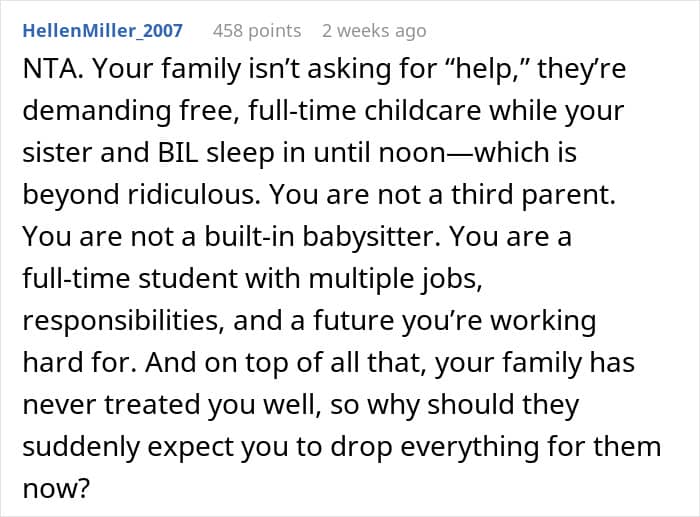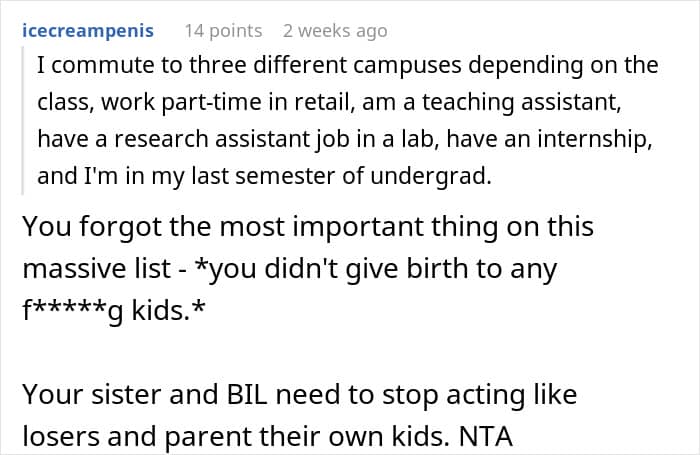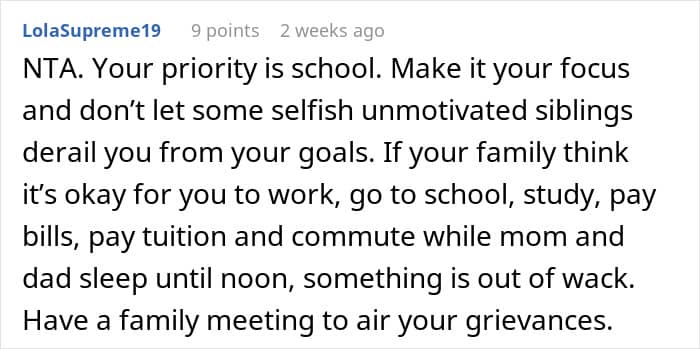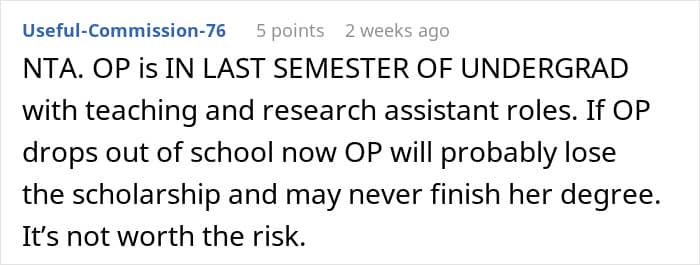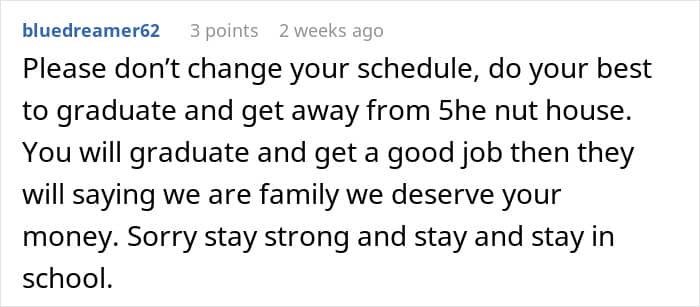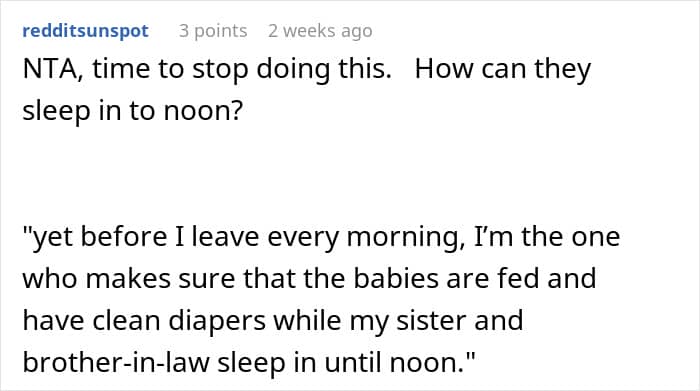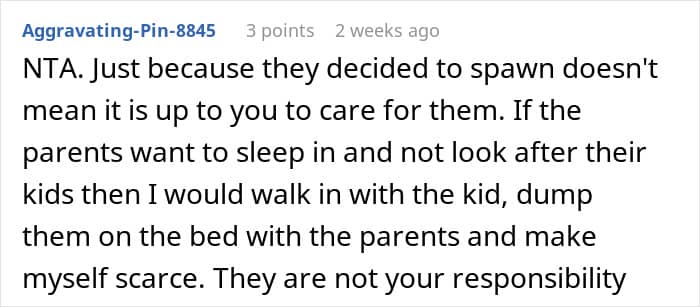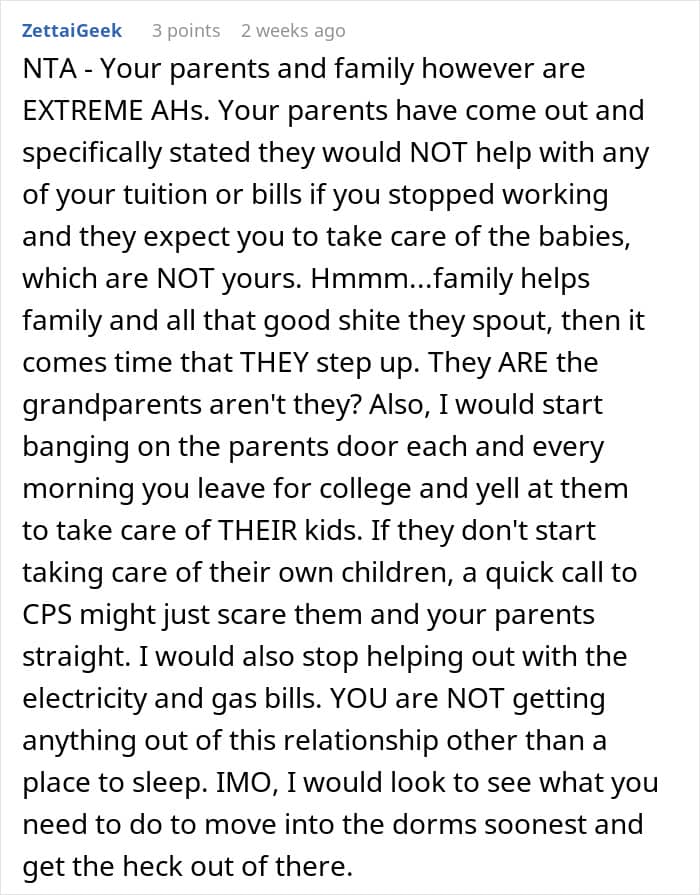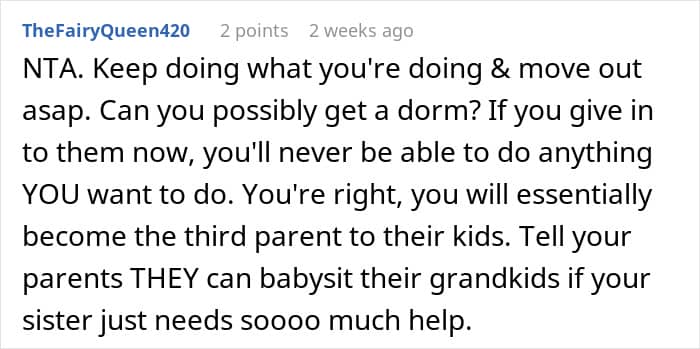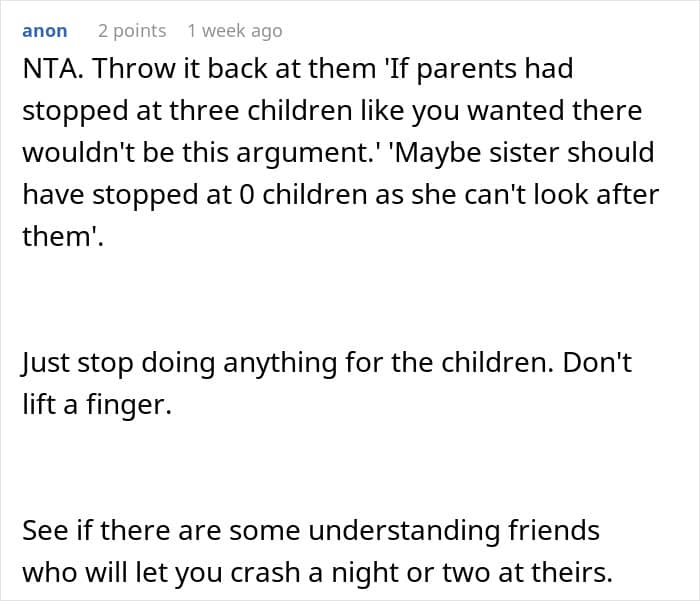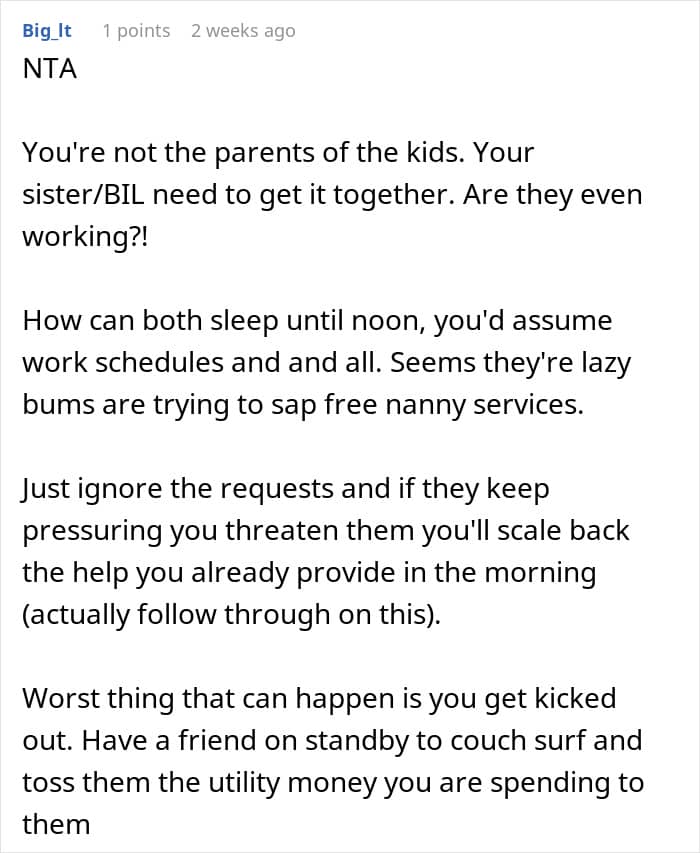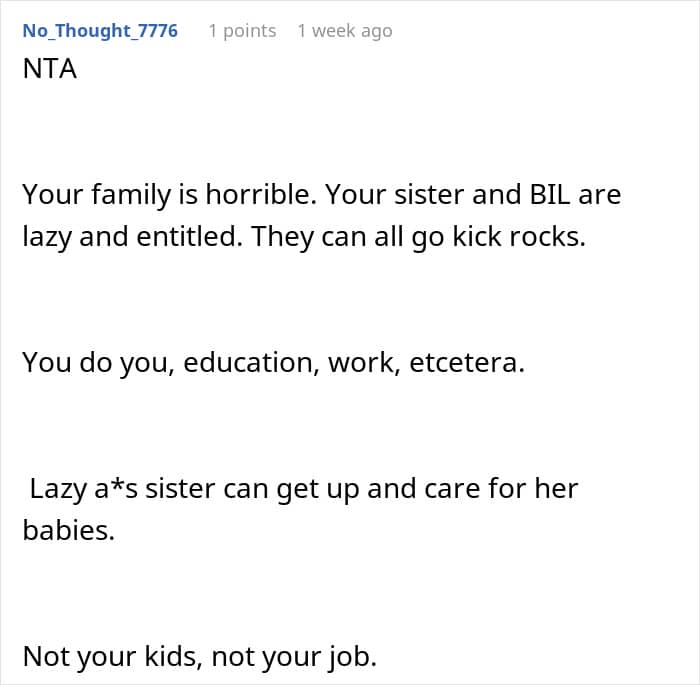They say raising kids takes a village, yet some couples don’t realize that not every member of their village might want to partake in helping with kids. Family members should have each other’s backs, but not at the price of their own lives and futures.
This family expected their youngest to help her sister and husband take care of the baby twins. When she wanted to prioritize her studies and refused to change her schedule, family members ganged up on her. That’s why she went online to ask people whether she should stand her ground or compromise and help her family out.
RELATED:A 20 Y.O. student was asked to reschedule her classes so she can babysit sister’s twins
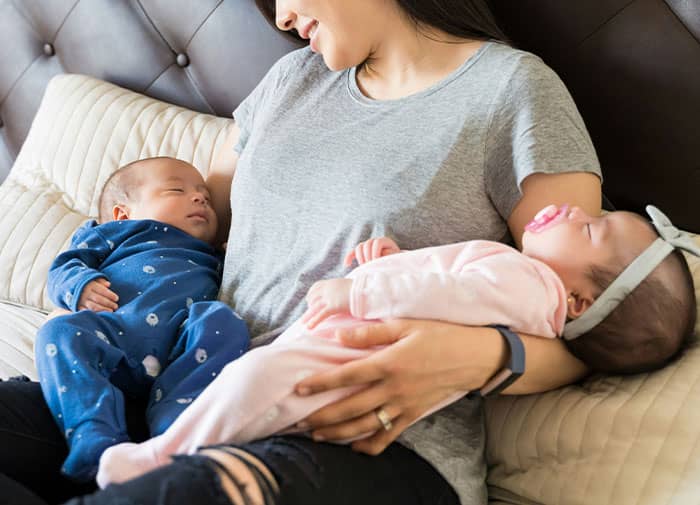
When she refused, the whole family ganged up on her
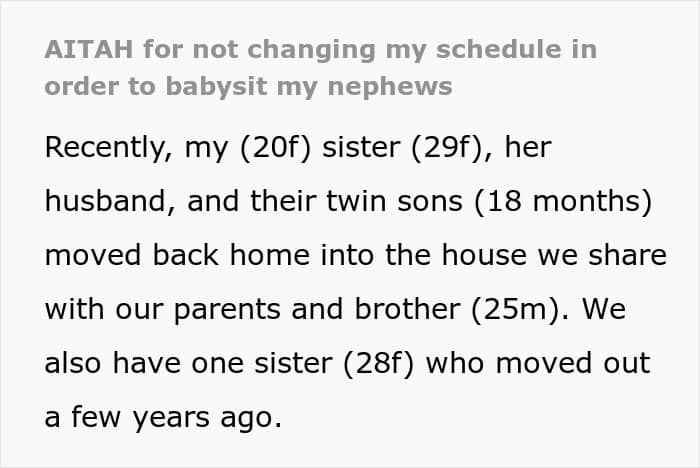
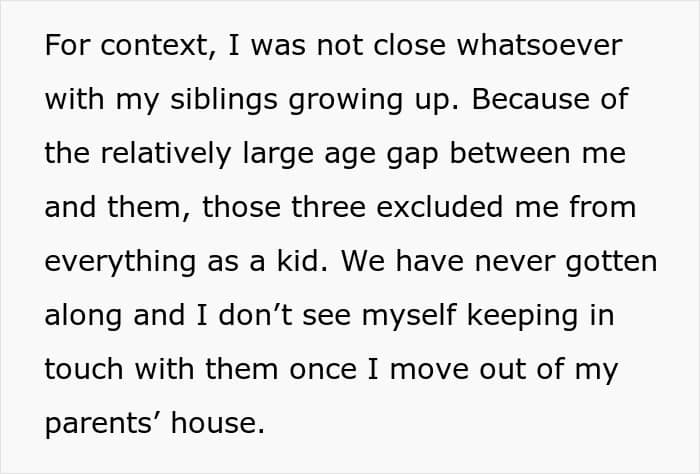
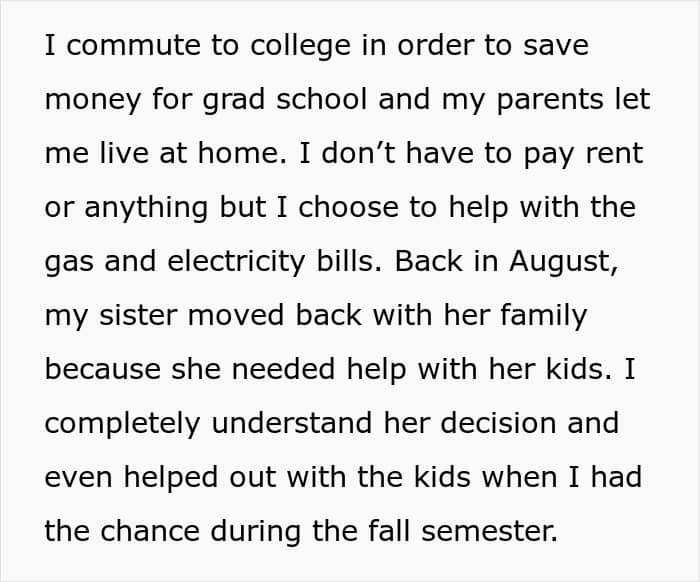
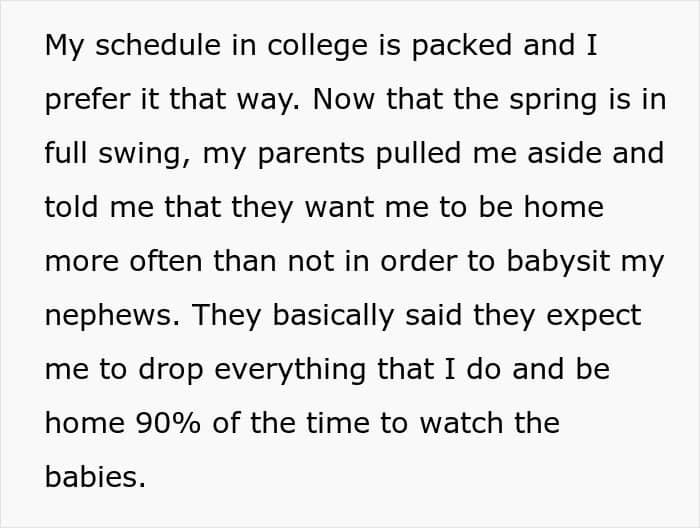

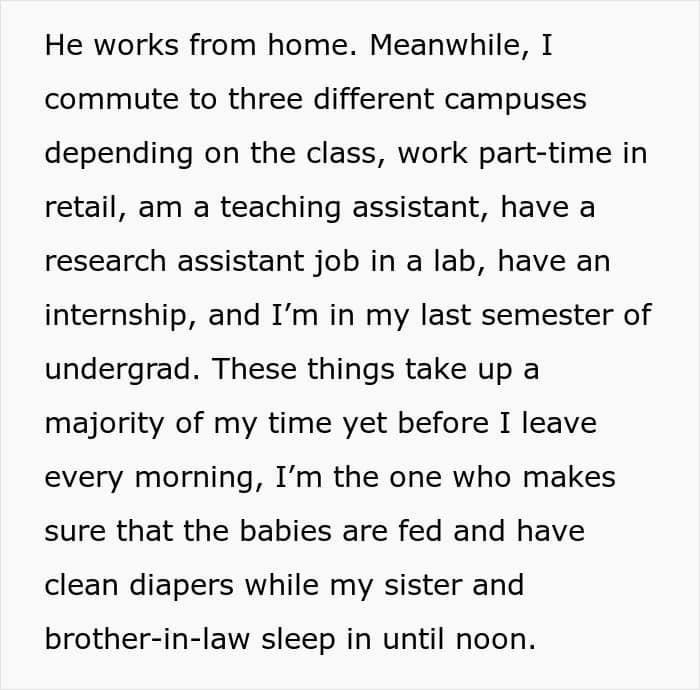

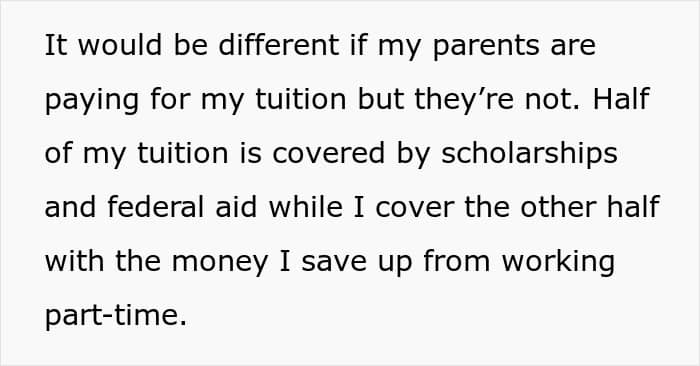
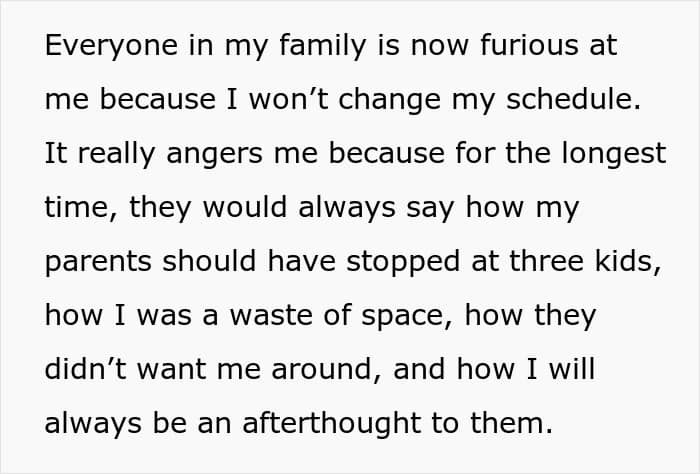

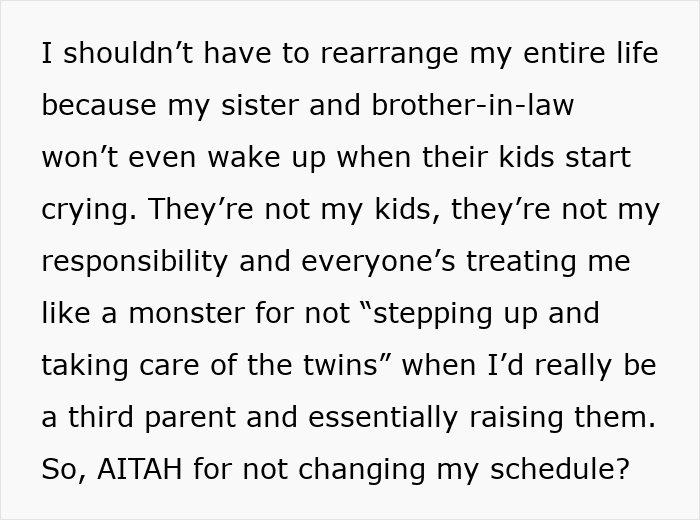

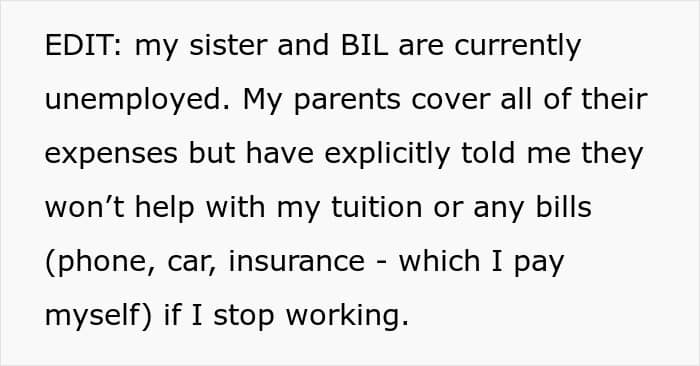
Image source: OkEvidence1119
Parental favoritism often breeds resentment that stays well into adulthood

As a child, you hope that your parents love you and all your siblings equally. Sometimes, however, you find out that it’s not true. In this story, the OP recounts always feeling like an outcast in her family, in some instances even explicitly hearing things like how her parents wished they never had her.
Parental favoritism is hurtful when it’s unintentional, but when a child has to hear such things growing up, it’s beyond bad. In a previous interview for We, Haley Neidich, LCSW, explained that lesser-favored children often have self-esteem issues.
The OP feels like she owes her older sister no favors because she feels resentment from childhood. And that’s according to Neidich, a pretty common thing, too. ” Recognizing that you and your sibling were both children and that the adults around you caused this dynamic can create a space where healing can occur,” she says, referring to parental favoritism.
Adult siblings, according to her, can move on and have a good relationship, but that requires active work. “Focus on the relationship you want now, rather than past hurts, and set boundaries to protect your peace of mind,” the mental health expert recommends.
Perhaps the best course of action for the OP would be to establish her independence and identity outside of her family. “Reclaiming self-worth outside of family dynamics helps individuals move forward and heal as families with these dynamics often deal with poor boundaries and enmeshment,” Neidich told We in the past.
Expecting a sibling to assume a caregiving role hinders their autonomy and identity development
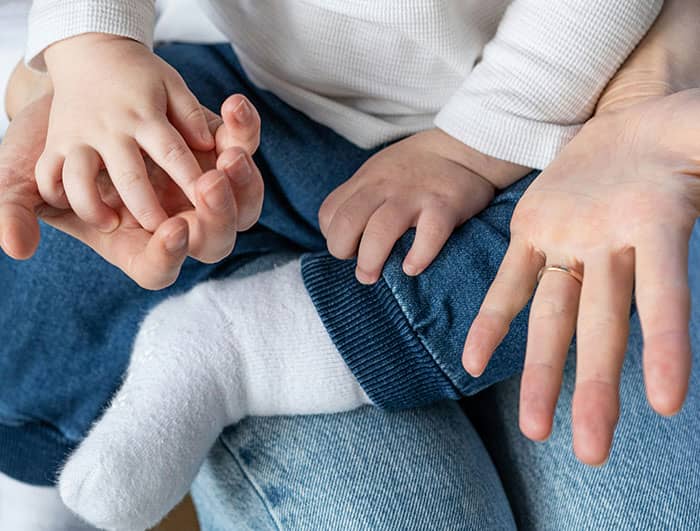
This Redditor’s situation could probably fall into the category of parentification. Although usually the oldest siblings get parentified, it can happen to younger siblings, too. Some might think that parentification is not the issue here: the OP is a grown-up and we use the term ‘parentification’ in situations when siblings assume the role of parents.
However, in this particular situation, the OP’s parents are still treating her like a child. Her older sister and her husband are, too, expecting her to take on the majority of the childcare duties even if she’s not the parent.
As mental health consultant Imi Lo explained to We in a previous interview, parents should never assume that their child, even an adult one, must help with childcare. “While it may be common and generally accepted as the norm in some cultures for older siblings to take on significant caregiving duties, this does not make it healthy or appropriate,” she noted.
The OP is still a student, pursuing higher education and trying to form her own identity. She has plans for grad school, but her parents are asking her to sacrifice her future for the sake of the family.
Imi Lo previously told us that the needs of parentified children often end up being subordinated to those of the family. “When older siblings are expected to automatically assume caregiving responsibilities, even into adulthood, it can significantly impact their autonomy, identity development, and pursuit of personal goals.”
In the comments, the young woman detailed how she always felt invisible to her parents and siblings

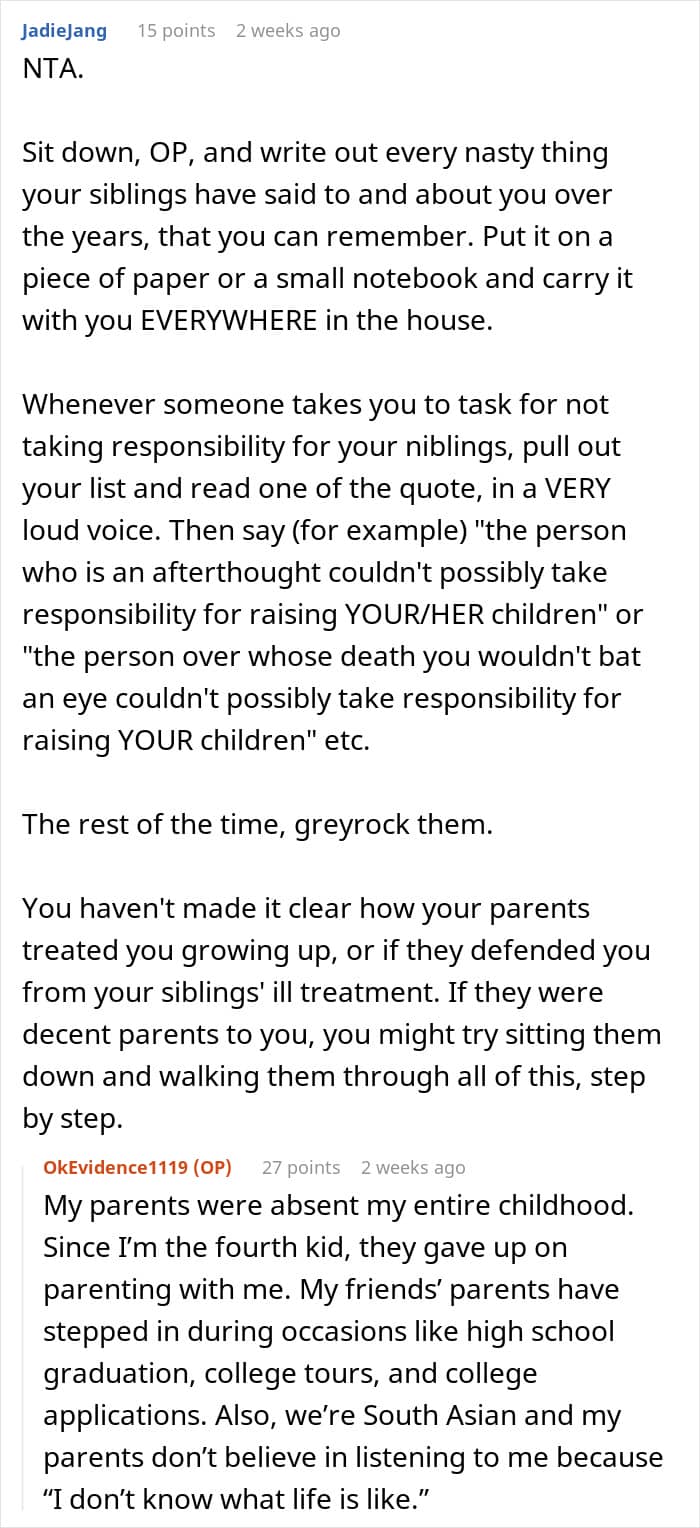
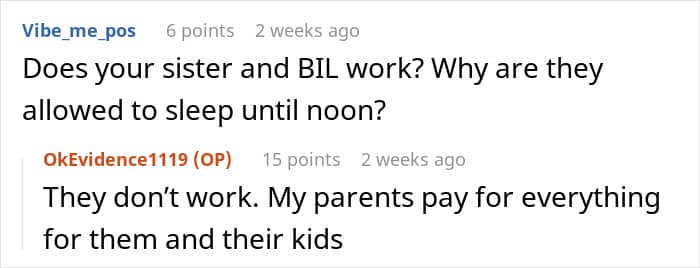

People sided with the young woman and urged her to set clear boundaries
